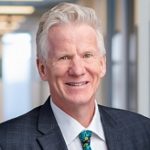 By Nick van Terheyden aka Dr Nick, Principal, ECG Management Consulting
By Nick van Terheyden aka Dr Nick, Principal, ECG Management Consulting
Twitter: @drnic1
Host of Healthcare Upside Down – #HCupsidedown
We can all probably remember with clarity that moment when pain strikes. That moment when you trip, fall, and break something.
But what happens next can vary widely, depending not only on the type and extent of the injury but also on the physician you seek out for diagnosis, treatment, and relief. Unfortunately, that process for musculoskeletal (MSK) problems is not consistent; your experience is largely driven by who you see first and their expertise.
Episode NOW on Demand
While there are outliers, the vast majority of MSK issues will respond well to conservative treatment and not require surgical intervention. But in our fee-for-service-driven healthcare system, that is not the most likely pathway for many of us.
We all want the best care with the least amount of intervention, and surgery should be an option when other tools fail. Medicine is increasingly moving in this direction, but the specialty of orthopedics has been slower to embrace a more holistic approach. How do we make this a wider standard of care?
Dr. Steven Schutzer is an orthopedic surgeon from Advanced Orthopedics New England and the co-founder of Upswing Health. On this episode he explains why a more integrated approach to orthopedic care is a win for patients, surgeons, and payers. Below are a few excerpts.
When data drives care decisions.
“In 2006–2007, we saw the emergence of what we called an epidemic in total joints. Baby boomers in my generation were coming of age, and it was just an explosion of volume. A group of us were doing three cases a day, and we had zero input or influence over any of the operations that guided those patients. So 10 orthopedic surgeons came together in 2006 and said, ‘Let’s agree to make data-driven decisions and standardize our approach to our care delivery.’ We formed a company, found a partner that shared the same vision that we did—St. Francis Hospital, here in Hartford, Connecticut—and built a center of excellence. And we did that by looking at the data, from the very first patient to 50,000 strong now.”
A better patient journey.
“Fifty percent of the patients I see in my office come through a PCP who’s not trained in orthopedics and who’s got 15 minutes to see a comorbid patient who says, ‘My shoulder hurts.’ What are they going to do? [Send them to] get an MRI and see a surgeon. That’s sometimes not the best journey for the patient. My partner and I created Upswing Health to get patients on the right care path—from what we call the ‘ouch moment.’ When somebody has this ouch moment, they have two questions: ‘What do I have?’ and ‘Where do I go?’ And we think much of that can be done virtually.”
Virtual front door.
“We said, ‘Let’s design it the way it should be—virtual first.’ Patients jump onto our platform, they answer some questions that would mimic the same questions I would ask—Was there an injury? Does it click? Does it pop? Where does it hurt?—and about 10 seconds later, [they get] a differential diagnosis. Then they have the opportunity to read about each option and say, ‘It sounds like maybe I have a labrum tear. Maybe I don’t even to see a doctor; let me try these stretches, and so forth.’ The next day, our athletic trainers reach out and help guide them on some other rehabilitation tools. Think about the savings to the payer. And of course, the patients love not having to come to the office. We’re very excited about this virtual front door that we’ve created.”
This article was originally published on the ECG Management Consulting blog and is republished here with permission.
About the Show
The US spends more on healthcare per capita than any other country on the planet. So why don’t we have superior outcomes? Why haven’t the principles of capitalism prevailed? And why do American consumers have so much trouble accessing and paying for healthcare? Dive into these and other issues on Healthcare Upside/Down with ECG principal Dr. Nick van Terheyden and guest panelists as they discuss the upsides and downsides of healthcare in the US, and how to make the system work for everyone.
Tune in weekdays at 9am, 5pm, and 1am ET.
Join the conversation on Twitter at #HCupsidedown.
